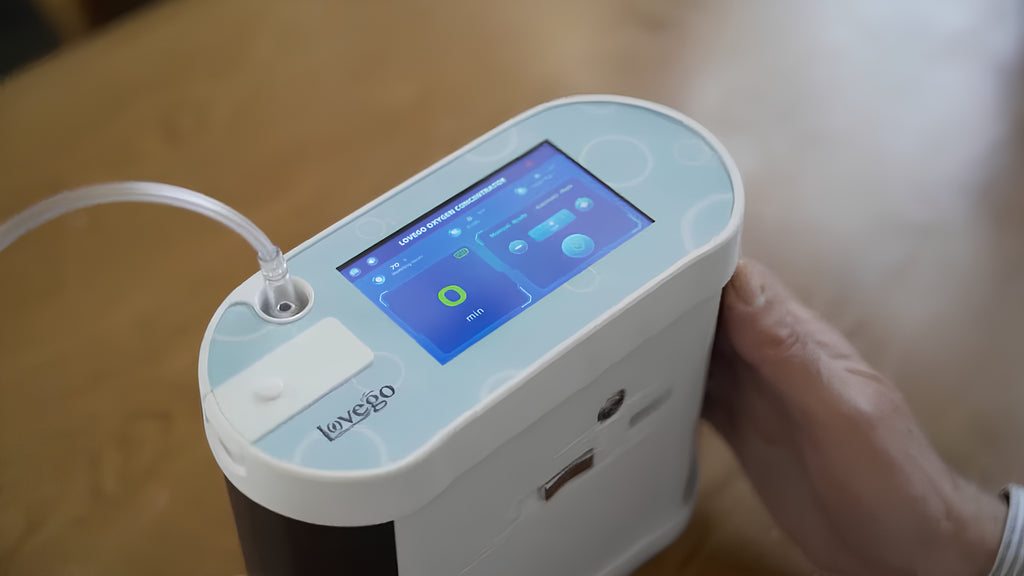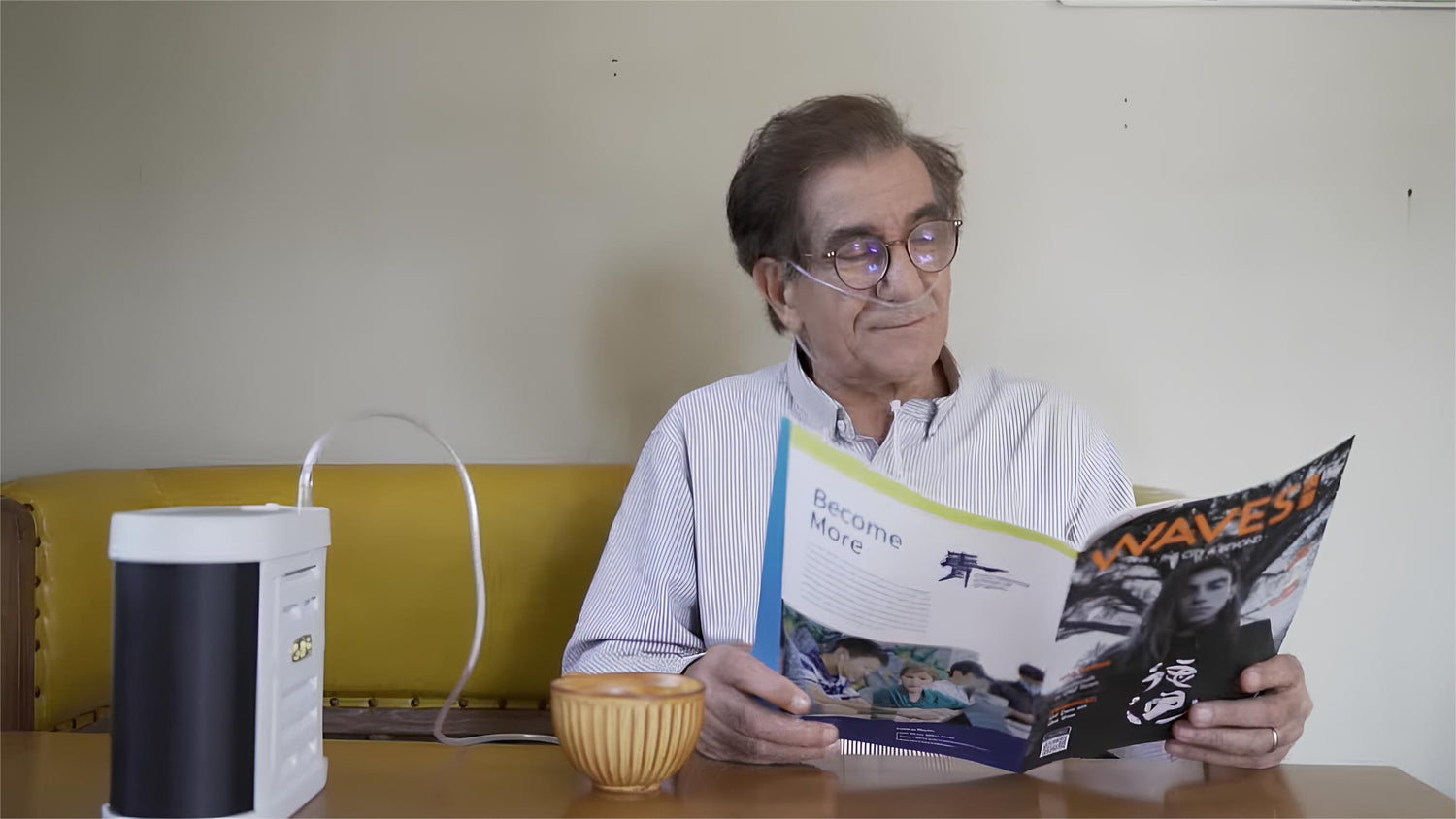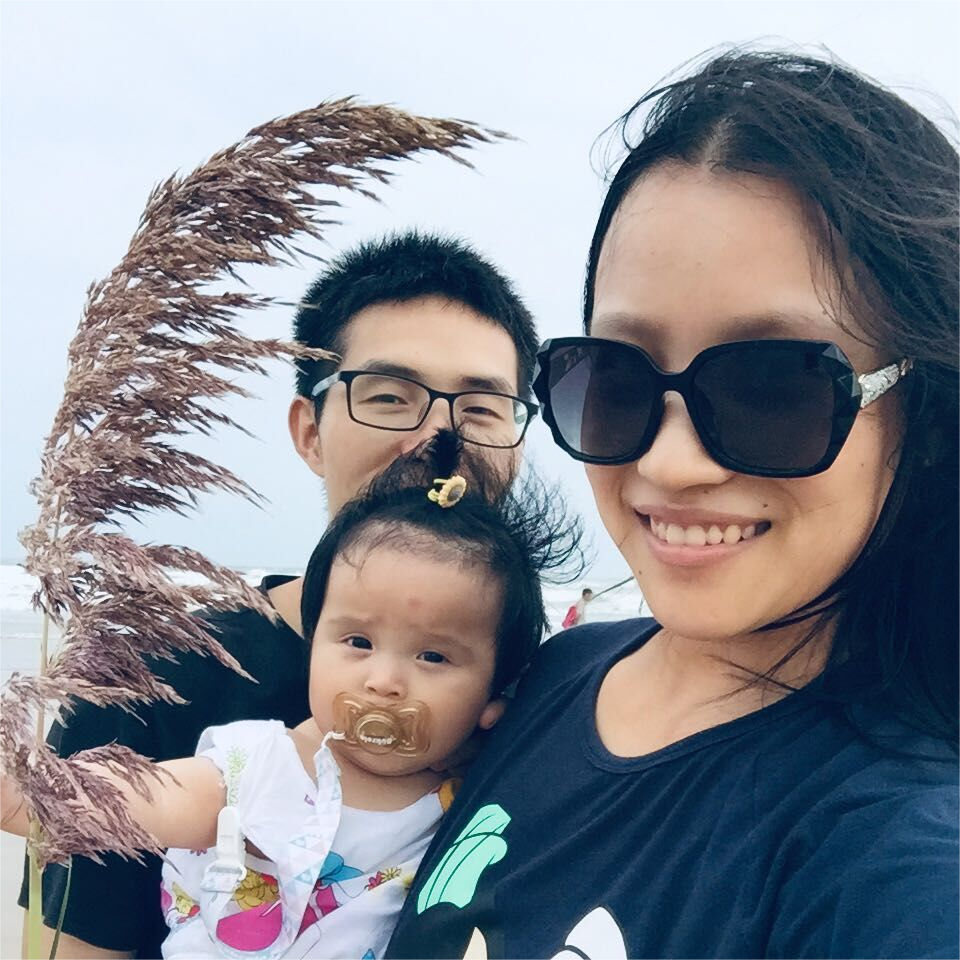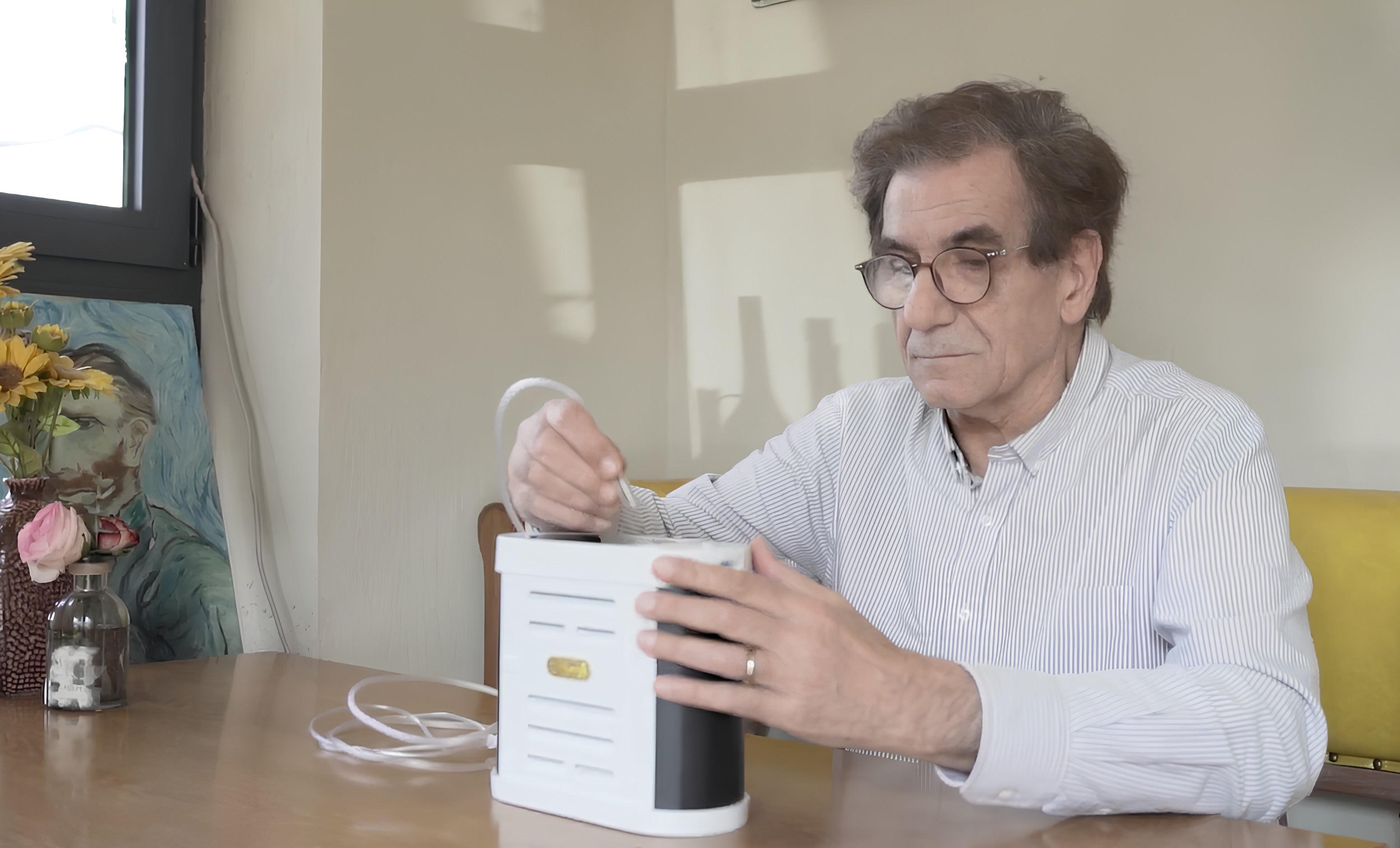If you're in the market for a portable oxygen concentrator (POC), you know it's not just another purchase-it's a decision that affects your daily freedom and health. Imagine a device that gives you the liberty to move around without worrying about your next breath; that's what a good POC does. But with all the choices out there, how do you zero in on the one that fits your life? It's about asking the right questions: Will it meet your specific oxygen needs? Does the battery have the stamina for your daily activities? This article is your friendly guide through the essentials-10 key points to consider before you commit to a POC. We aim to demystify the specs and help you focus on what's important so that you can choose with confidence and breathe easier.
1. How Do You Assess Your Personal Oxygen Requirements?
Understanding your personal oxygen requirements is a crucial step before selecting a portable oxygen concentrator. It's important because everyone has different levels of oxygen needs, which can vary due to several factors including the type and severity of your respiratory condition. Think of it as getting the right dose for your medication-it has to be precise to be effective.
To determine exactly what you need, you should consult with your healthcare provider. They will evaluate your condition, run necessary tests, and then give you a clear idea of whether you need a continuous flow of oxygen or if a pulse dose, which delivers oxygen only when you inhale, is sufficient. Armed with this information, you can look for a POC that meets these specifications, ensuring that wherever you go, your oxygen therapy follows suit without any hiccups.

2. What Are the Oxygen Output and Flow Rates You Need?
When you're picking out a portable oxygen concentrator, it's essential to know about the oxygen output and flow rates. These two factors determine how much oxygen the device can deliver to meet your medical needs. Oxygen output is measured in liters per minute, and your doctor will recommend a specific setting that's right for you.
Portable oxygen concentrators come with different settings for adjusting the flow rate. Some provide a continuous flow, which means they deliver a constant stream of oxygen. Others use a pulse dose method that releases oxygen only when you inhale. There are also devices that offer both options, giving you more flexibility.
Make sure the POC you're considering has the capacity to provide the oxygen flow rate prescribed by your healthcare provider. If your needs might change over time, consider a POC that offers a range of settings so you can adjust as necessary. It's all about finding a match between what your body needs and what the device can supply.
3. Does the Device Offer Pulse Flow, Continuous Flow, or Both?
Choosing between pulse flow and continuous flow is an important decision when selecting your portable oxygen concentrator. Pulse flow devices trigger a burst of oxygen as you start to inhale, while continuous flow devices provide a steady stream of oxygen regardless of your breathing pattern.
Your doctor's advice comes into play here again; they'll recommend which type of flow is best for your condition. Some patients may do well with pulse flow, but others, especially those who need oxygen while sleeping or exercising, may require continuous flow. The choice can also affect the size and battery life of the concentrator, so think about your daily routine and where you'll be using it most often.
It's worth considering devices that offer both pulse and continuous flow if you want versatility and the ability to adjust settings according to different situations or if your needs might change over time. Be clear about what the concentrator offers and ensure it aligns with your medical requirements.
4. What are the Noise Levels of Your Portable Oxygen Concentrator?
When selecting a portable oxygen concentrator (POC), it's important to consider the noise level, which is an inevitable part of its operation. These devices typically emit some sound while in use, and this is perfectly normal. In fact, if you use your POC and notice no noise at all, it may indicate that the device is not functioning correctly, and you should check to ensure it's operating as intended.
Noise levels for POCs are generally measured in decibels (dB), and this can vary from one model to another. While looking for a POC, especially if you're sensitive to noise or require the device for use in quiet settings such as during work hours or while sleeping, opting for a model with a lower decibel output should be prioritized.
It's normal to experience a low level of noise while using your POC, but it's also crucial to be aware that excessive loudness is not standard. If your POC is producing a noise that seems too loud or disruptive, this could indicate a problem, and it may require professional attention.
Before you commit to a purchase, think about where and how often you'll need to use your portable oxygen concentrator. It's advisable to review the decibel ratings mentioned by the manufacturer, and when possible, personally test the device to determine whether the sound level is tolerable for your situation. Keep in mind that even small differences in decibel levels can significantly affect your comfort with the noise produced.
5. How Easy is the Portable Oxygen Concentrator to Use?
Using a portable oxygen concentrator (POC) should be stress-free. Look for one with controls that are easy to figure out. The control panel shouldn't be overwhelming; instead, it should have big, easy-to-press buttons and a screen that shows everything clearly. This is really helpful for anyone who might find small buttons tricky or if you don't see too well. Some POCs even come with simple instructions on the screen to guide you through their use.
Carrying your POC shouldn't feel like a workout. Choose a model that feels light enough to carry without much effort. Many POCs have special cases or straps that help make them easier to take with you wherever you go. These should feel comfortable and not dig into your shoulders or hands. A good design will make sure the POC feels balanced when you're carrying it so it won't get in the way of your daily activities.
In short, your POC should fit into your life without any extra headaches. It's all about getting a device that you can operate easily, from turning it on and adjusting the oxygen flow to taking it along when you head out. When your POC is easy to handle, it lets you keep living your life fully without having to focus too much on managing your oxygen needs.

6. Is the Portable Oxygen Concentrator FAA-Approved for Travel?
If you travel by air and require oxygen, it's important to ensure that your portable oxygen concentrator is approved by the Federal Aviation Administration (FAA). Not all POCs are cleared for use on airplanes, so this approval is crucial if you plan to fly.
The FAA has specific requirements for oxygen devices on flights to ensure they are safe to use on board. When shopping for a POC, look for the label or documentation that confirms it meets FAA standards. This information can usually be found in the product description or user manual.
Also, check with your airline before flying, as each carrier may have additional guidelines for bringing a POC on board. Planning ahead will help make your air travel experience smoother and ensure that you have the necessary oxygen support throughout your journey.
Selecting an FAA-approved device is not only about compliance but also about your freedom to move about and continue your normal activities without interruption, no matter where you are.
7. What Are the Costs Associated with Buying a Portable Oxygen Concentrator?
The cost of a portable oxygen concentrator can be a significant factor in your decision-making process. Prices vary widely based on features, brand, flow rate capacity, and battery life. Beyond the initial purchase price, consider long-term costs such as replacement batteries, filters, or any additional accessories you may need.
Insurance coverage is another financial aspect to explore. Some insurance plans may cover part or all of the cost of a POC, so it's essential to check with your provider to understand what is included in your policy. Medicare or other health assistance programs might also offer support, but they have specific requirements for coverage.
Looking at warranties and after-sales services can provide value in the long run. A longer warranty or inclusive maintenance plan could save you money on potential repairs. Be sure to factor in these considerations to get a comprehensive view of the total investment required for your POC.
When evaluating cost, think about the balance between affordability and the quality or features that are important for managing your health condition effectively. It's about finding a device that offers the best value within your budget.
8. How Portable is the Oxygen Concentrator for Everyday Use?

When considering portability, it's important to assess how easily you can move around with the oxygen concentrator on a daily basis. Weight is a primary concern; a lightweight unit will be more comfortable to carry, especially if you are frequently on the move. Size also matters as a compact design can make a device easier to transport and less obtrusive during use.
Another aspect of portability is battery life. A concentrator with a longer battery life will allow you to be out and about without constantly worrying about recharging. Furthermore, investigate whether the device has an option for external batteries, which can extend its usability while you're away from a power source.
Check too for additional features that enhance portability. Some models come with custom carrying bags or carts designed to make transportation effortless. These accessories should not only fit the device snugly but also be durable and convenient for your lifestyle.
In summary, the right POC for you will blend seamlessly into your day-to-day activities, offering the freedom and independence you need without becoming a burden. Consider how each device's portability aligns with your typical daily routine before making your selection.
9. What Kind of Warranty and Customer Support Can You Expect?
When purchasing a portable oxygen concentrator, it's important to consider the warranty and customer support that comes with it. The warranty will protect you against defects or malfunctions for a certain period after your purchase. Look for the length of the warranty period and what specific parts and services are covered. Some companies might offer extended warranties for an additional cost, which could provide peace of mind if you're concerned about potential repairs or issues down the line.
Customer support is equally crucial. Good customer service can mean timely and helpful assistance if you run into problems or have questions about your device. Try to find out if the manufacturer offers support over the phone, via email, or through live chat. It's beneficial to choose a company with a reputation for responsive and knowledgeable customer service.
Before making a decision, read reviews or ask for recommendations from other POC users about their experiences with different brands' customer service and support. Knowing that you have a strong warranty and reliable customer support can make your experience with a portable oxygen concentrator much more secure and satisfying.
10. How Many Hours of Battery Life Does the Portable Oxygen Concentrator Provide?
When selecting a portable oxygen concentrator (POC), battery life is an essential factor to consider. It dictates how long you can rely on the device while you're out and about before it needs to be plugged in again. Make sure to check how many hours the battery can last after a full charge, but keep in mind that using a higher flow setting may reduce this time.
Manufacturers usually give details about how long the battery will last at certain oxygen output levels. If you know you'll be away from a power source for extended periods, look into POCs that offer larger batteries or the ability to carry spare batteries. Having an extra fully charged battery can provide peace of mind and double your time away from charging facilities, ensuring that your oxygen therapy continues uninterrupted throughout the day.
Charging convenience is also key. Find out how long the POC's battery takes to recharge, and if you can still use the device while it's plugged in. For those who are often on the go, consider a model that recharges quickly or can be topped up using a car charger or even an external battery pack. The right POC should support your active lifestyle by providing reliable power that meets your daily needs without constant recharging breaks.
Find Your Ideal Portable Oxygen Concentrator Today
Selecting a portable oxygen concentrator requires careful consideration of your individual needs and lifestyle. This article has outlined ten essential factors to evaluate, from assessing your personal oxygen requirements to understanding battery life implications. When you consider these key points-such as the device's flow type, noise level, usability, FAA approval for travel, cost, portability, warranty, and customer support-you equip yourself with the knowledge to make an informed decision. Remember, the goal is to find a POC that not only provides the medical support you need but also fits comfortably into your daily life, ensuring you have the freedom and independence you deserve. By weighing each factor carefully against your personal criteria, you can choose a portable oxygen concentrator that will be your reliable companion, wherever life takes you.





اترك تعليقًا
This site is protected by hCaptcha and the hCaptcha Privacy Policy and Terms of Service apply.